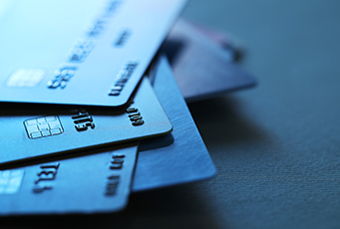Nine months ago, Covid-19 impacted all aspects of our lives in ways we could have never imagined. One of the most surprising areas has been our bank accounts. The Bureau of Economic Analysis reports that savings almost tripled over the first two quarters of 2020. Who would have thought that would be the case back in March? This additional savings helps to cushion rainy day funds, but in today's low-rate environment, there comes the point that you should think about how to make the cash - that you worked hard for - work even harder for you.
So what should be top of mind for you? Is there a home improvement project that you've been considering? Depending on the project's scope, you may be able to pay cash for some or all of it. With interest rates as low as they are, you could also consider taking out a Home Equity Loan if your cash cushion isn't enough to absorb the financing.
While no one likes to pay more in taxes, if you have additional cash on hand, you could consider converting some of your pre-tax retirement funds to a Roth IRA. Any funds converted to a Roth IRA will be part of your taxable income this year, but all future growth and distributions are tax-free. Your extra cash will be available to pay the additional income tax owed on the conversion. If you anticipate being in a higher tax bracket in the future, doing a Roth conversion now can save you money in the long run. However, there is a five year holding period on distributions of funds that were converted. If you anticipate using the funds in less than five years, you will want to skip this option. Don't forget to keep your tax advisor in the loop as well.
What about investing some of that extra cash in your brokerage account? You can spread out your investments over the next few months to average into the market rather than investing the funds in one swoop. We expect the market to return more than your savings account over the long term, but there will certainly be bumps along the way. Talk to your financial advisor about investing your cash in areas that align with your risk tolerance.
Alternatively, what does your portfolio look like? Are you holding any positions with large capital gains? It may seem counterintuitive to sell something that you have made money on, but you also want to have a plan in place to protect those gains and avoid getting too concentrated on one investment. Buy low, sell high, right? Your extra cash can be earmarked for the capital gains taxes that are generated. If you don't want to exit a particular investment, you can sell a position at a gain and immediately buy the same investment so that you were never out. This works for harvesting gains, but won't work for harvesting losses.
Non-profits will gladly take your excess cash off your hands. If you plan to take the standard deduction in 2020, you can deduct cash gifts to charities up to $300. Also, for 2020 only, the CARES Act allows taxpayers who itemize on Schedule A to deduct cash gifts up to 100% of their Adjusted Gross Income.
Indiana residents can get an Indiana state income tax credit by contributing money to an Indiana 529 account. The credit is equal to 20% of the contribution, with a maximum credit of $1,000. You do not have to be the account owner to make a contribution and receive a credit.
COVID-19 has forced us to think differently about everything, from toilet paper to getting together with friends and family. Somewhere in the middle of everything is your bank account and financial well-being.
Schedule a Consultation
We have helped our clients answer these questions and more. If you want a clear understanding of your financial future, and need help making changes to reach your goals, schedule a consultation and we can get started.
Please remember that past performance may not be indicative of future results. Prior to implementing any investment strategy referenced in this article, either directly or indirectly, please discuss with your investment advisor to determine its applicability. Any corresponding discussion with a Bedel Financial Consulting, Inc. associate pertaining to this article does not serve as personalized investment advice and should not be considered as such.





